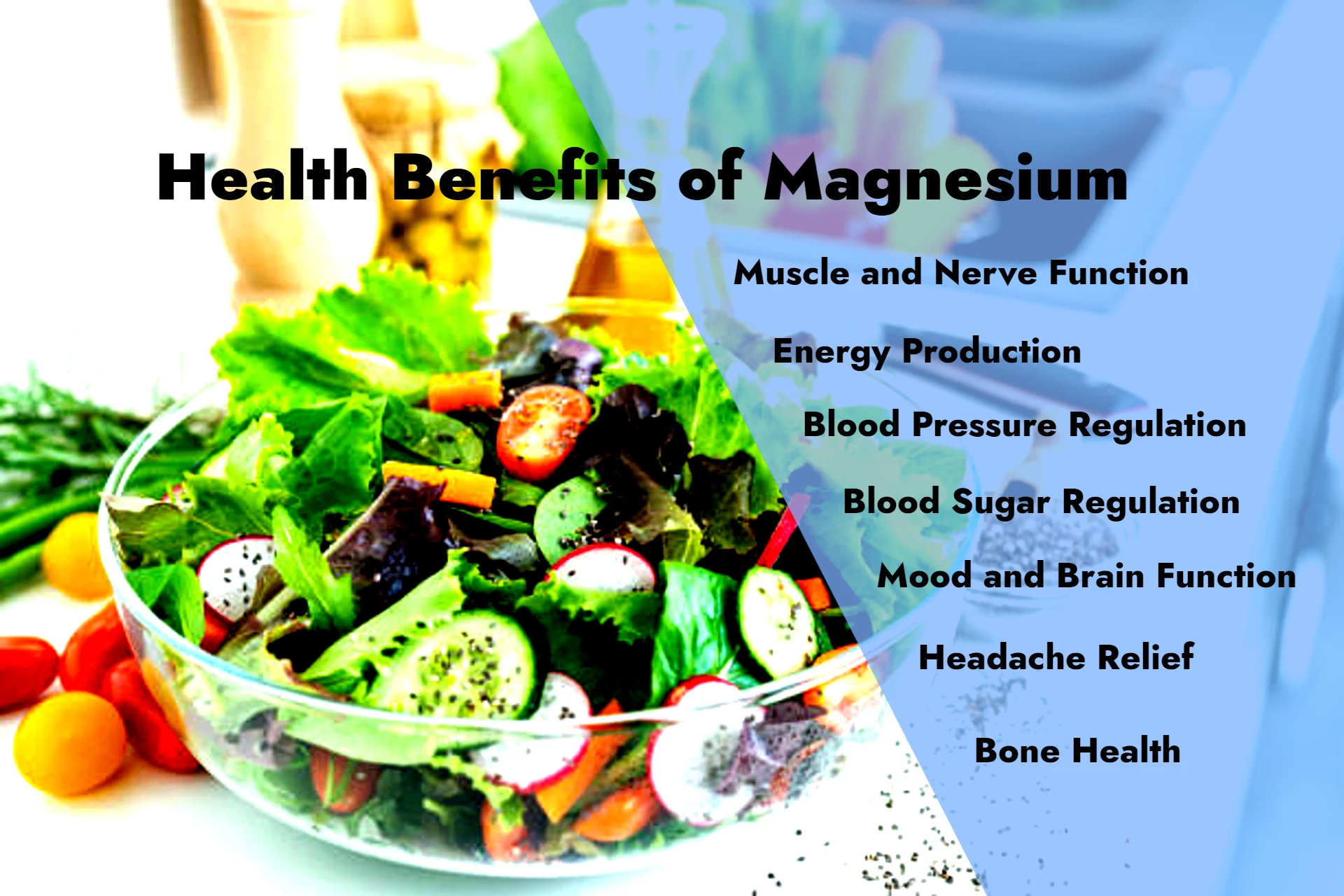Magnesium is an essential mineral for athletes and everyone of us. It plays a vital role in harmonizing various biochemical processes within the human body. Magnesium is involved in over 300 enzymatic reactions in our bodies. These include energy production, muscle contraction, and nerve function. While magnesium is crucial for overall health, its significance in sports performance is particularly noteworthy and undeniable. Athletes can benefit from magnesium supplements because, it enhances muscle function and supports recovery.
Dietary sources like leafy greens, nuts, and whole grains provide magnesium-rich options. However, magnesium for athletes’ performances require monitoring for magnesium intake. This is important to ensure optimal performance, recovery, and promoting overall well-being.
Therefore, consulting a healthcare professional is advisable to determine individual magnesium needs and supplement dosage. Incorporating magnesium into your daily routine can help optimize your performance and support your long-term athletic success.
Importance of Magnesium for Athletes Performance
Magnesium-rich foods for athletes is a game-changer. It fuels your muscles by supporting your energy production and enhancing your muscle function. In addition, it reduces cramps and promotes speedy recovery.
This mineral also contributes to healthy blood sugar regulation ,and it also provides sustained energy for peak performance. Furthermore, magnesium for athletes can enhance your sleep quality, which is crucial for your optimal recovery and mental focus.
When you include magnesium-rich foods in their diet, as an athlete can unlock a natural performance edge over doping.
Role of Magnesium in Muscle Function
Magnesium is integral to muscle function, serving as a cofactor for ATP (adenosine triphosphate) synthesis, the primary energy currency of cells. During intense physical activity, the demand for ATP increases significantly, highlighting the importance of adequate magnesium levels for optimal muscle performance and endurance.
Energy Production and ATP Synthesis
In addition to its role in ATP synthesis, magnesium is involved in the metabolism of carbohydrates and fats, which are essential sources of energy during exercise. Therefore, maintaining sufficient magnesium levels is crucial for sustaining energy levels and preventing fatigue during prolonged physical exertion.
Magnesium Deficiency and Sports Performance
Magnesium deficiency can hinder athletic performance. It disrupts muscle function, leading to cramps and fatigue. Energy production suffers, hindering endurance and power. Muscle recovery slows down, impacting training progress. In addition, magnesium deficiency is a quality sleep disruptor It compromises your focus and reaction time. By addressing this deficiency, you as an athlete can optimize your performance and experience faster recovery.
Symptoms of Magnesium Deficiency
Magnesium deficiency can lead to various symptoms, including muscle cramps, weakness, and fatigue, which can impair athletic performance and hinder training progress. Additionally, inadequate magnesium intake may contribute to electrolyte imbalances, further exacerbating the risk of muscle cramps and reduced exercise capacity.
Impact on Athletic Performance
Research suggests that magnesium deficiency may negatively impact athletic performance by compromising muscle function, increasing susceptibility to fatigue, and impairing recovery post-exercise. Therefore, ensuring optimal magnesium status is essential for athletes aiming to maximize their performance potential.
Sources of Magnesium
Magnesium, a mineral superstar, plays a crucial role in over 300 bodily functions. From regulating muscle and nerve function to supporting bone health and blood sugar control, ensuring adequate magnesium intake is vital for optimal well-being. But with a vast array of dietary choices, food sources of magnesium emerge as the natural question.
While a single champion doesn’t exist in the magnesium food arena, incorporating a variety of these powerhouses into your diet is the winning strategy. Here’s a glimpse into some of the top food sources of magnesium to illuminate your path to a magnesium-rich diet:
Leafy Green
- Spinach: A true champion, boasting nearly 158mg of magnesium per cooked cup.
- Kale: Not to be outdone, kale packs a powerful punch with 18mg per cup.
- Swiss Chard: This leafy green powerhouse offers 75mg of magnesium per cooked cup.
Legume
- Black Beans: A hearty and delicious source, providing 60mg of magnesium per half cup serving.
- Edamame: These baby soybeans offer a magnesium boost with 50mg per half cup serving.
- Lentils: Don’t underestimate these nutritional gems, with 36mg of magnesium per cooked cup.
Nut and Seed
- Pumpkin Seeds: A superstar among seeds, pumpkin seeds provide a whopping 168mg of magnesium per ounce.
- Almonds: A tasty and convenient snack, offering 80mg of magnesium per ounce.
- Chia Seeds: These tiny nutritional powerhouses pack a punch with 111mg of magnesium per ounce.
Whole Grain
- Quinoa: This ancient grain shines with 83mg of magnesium per cooked cup.
- Brown Rice: An accessible whole grain option, providing 37mg of magnesium per cooked cup.
- Oatmeal: A heart-healthy choice, offering 60mg of magnesium per cooked cup (rolled oats).
Dark Chocolate
- Dark Chocolate (at least 60% cocoa): Indulge guilt-free with 50mg of magnesium per ounce.
Remember: While these food sources of magnesium are excellent choices, consulting a healthcare professional is vital to determine your specific needs and ensure a balanced diet. So, embrace the power of magnesium-rich foods and unlock a path to a healthier you!
Dietary Sources
Magnesium is naturally present in many foods, including leafy green vegetables, nuts, seeds, whole grains, and legumes. Consuming a varied and balanced diet rich in these magnesium-containing foods can help athletes meet their daily magnesium requirements.
Supplements
In cases where dietary intake may be insufficient or impractical, magnesium supplements can serve as a convenient and effective means of boosting magnesium levels. However, it is essential to choose high-quality supplements and consult with a healthcare professional to determine the appropriate dosage and form of magnesium for individual needs.
Recommended Daily Intake for Athletes
The recommended daily intake of magnesium varies depending on factors such as age, sex, and activity level. For athletes engaging in intense training regimens, higher magnesium requirements may be necessary to support increased energy expenditure and muscle demands.
Magnesium Supplementation in Sports
Timing and Dosage
Timing and dosage of magnesium supplementation can significantly impact its effectiveness in enhancing sports performance. For example, athletes seeking to optimize their muscle function and endurance benefits from pre-exercise supplementation. While, others may find post-exercise supplementation beneficial for promoting recovery and reducing muscle soreness and healing.
Forms of Magnesium Supplements
Various forms of magnesium supplements are available, each with unique properties and absorption rates. Common forms include magnesium citrate, magnesium glycinate, and magnesium oxide. Selecting the most suitable form depends on factors such as gastrointestinal tolerance and desired outcomes.
Benefits of Magnesium Supplementation for Athletes
Enhanced Muscle Function and Recovery
Supplementing with magnesium has been shown to improve muscle function, reduce the risk of cramps, and enhance recovery following strenuous exercise. By supporting energy production and electrolyte balance, magnesium supplementation can help athletes perform at their best and recover more quickly between workouts.
Reduction in Exercise-Induced Stress
Magnesium supplementation may also attenuate the effects of exercise-induced stress on the body, including oxidative damage and inflammation. By acting as a natural antioxidant and anti-inflammatory agent, magnesium can support overall health and well-being, enabling athletes to withstand the rigors of training and competition more effectively.
Risks and Side Effects of Magnesium Supplementation
Digestive Issues
While magnesium supplementation is generally safe for most individuals, some may experience gastrointestinal side effects such as diarrhea or nausea, particularly when taking high doses or certain forms of magnesium. To minimize discomfort, it is advisable to start with a low dosage and gradually increase as tolerated.
Interactions with Medications
Certain medications, such as antibiotics, diuretics, and calcium channel blockers, may interact with magnesium supplements, affecting absorption or excretion rates. Therefore, individuals taking prescription medications should consult with a healthcare provider before initiating magnesium supplementation to avoid potential adverse effects or drug interactions.
Adding Magnesium-Rich Foods into Athlete Diets
Examples of Magnesium-Rich Foods
Athletes can boost their magnesium intake by incorporating a variety of nutrient-dense foods into their daily diet. Examples of magnesium-rich foods include spinach, kale, almonds, cashews, pumpkin seeds, whole grains, and legumes. Consuming these foods regularly can help athletes meet their nutritional needs and support optimal performance.
Practical Tips for Athletes to Ensure Optimal Magnesium Intake
Athletes can optimize their magnesium intake by following these practical tips:
- Prioritize magnesium-rich foods in your diet, such as leafy greens, nuts, seeds, and whole grains.
- Consider incorporating magnesium supplements under the guidance of a healthcare professional, especially if dietary intake is insufficient.
- Stay hydrated, as adequate hydration is essential for optimal magnesium absorption and utilization.
- Monitor your magnesium levels periodically through blood tests to assess your nutritional status and adjust supplementation as needed.
Case Studies: Athletes and Magnesium Supplementation
Several studies have explored the effects of magnesium supplementation on athletic performance and recovery in various sports contexts. These case studies provide valuable insights into the potential benefits of magnesium for athletes striving to excel in their respective disciplines.
Conclusion
Nevertheless, magnesium plays a critical role in supporting sports performance by enhancing muscle function, energy production, and recovery. Athletes must prioritize adequate magnesium intake through a combination of dietary sources and supplements to optimize their physical and mental capabilities.
When you understand the importance of magnesium, implementing strategies to maintain optimal levels, becomes a priority. Athletes can unlock their full potential and achieve peak performance in their athletic endeavors without doping. This is why magnesium is your game-changer for sports people.
Frequently Asked Questions, FAQs
Can athletes get enough magnesium from their diet alone?
While magnesium-rich foods can contribute to overall intake, some athletes may require supplementation to meet increased demands, especially during periods of intense training.
What are the signs of magnesium deficiency in athletes?
Symptoms may include muscle cramps, weakness, fatigue, and impaired exercise performance. Regular monitoring and assessment can help identify and address deficiencies promptly.
Are there any risks associated with excessive magnesium intake?
Excessive supplementation can lead to gastrointestinal issues and may interfere with the absorption of other minerals. It is essential to follow recommended dosages and seek guidance from a healthcare professional.
Can magnesium supplements improve athletic performance immediately?
While some athletes may experience benefits such as reduced muscle cramps and improved recovery shortly after initiating supplementation, long-term effects may require consistent usage over time.
What is the best time of day to take magnesium supplements for athletes?
The timing of magnesium supplementation may vary depending on individual preferences and training schedules. Some athletes may prefer to take supplements before or after workouts to maximize absorption and efficacy.


